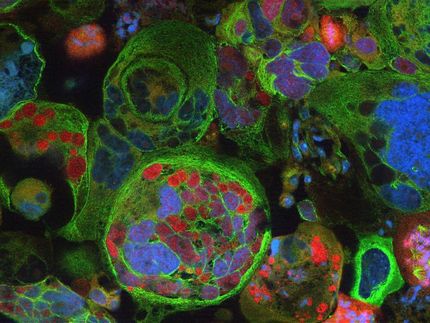Antisense Pharma Obtains IND for Clinical Studies in the USA
The American Department of Health, the FDA, agrees to the use of trabedersen for high-grade glioma (malignant brain tumor)
Advertisement
The biopharmaceutical company Antisense Pharma announced that the US-American Food and Drug Administration (FDA) has issued an Investigational New Drug (IND)-authorisation for clinical studies with trabedersen for patients with high-grade glioma. This authorisation entitles the company to include US-American clinics both in the phase III study SAPPHIRE and in further studies. The aim of the international, randomised, active-controlled approval study is to confirm the promising results obtained in previous studies concerning the efficaciousness and safety of the Antisense active ingredient trabedersen on 132 adult patients with recurrent, or refractory high-grade anaplastic astrocytoma (malignant brain tumor, WHO Grade III).
Phase III-Study SAPPHIRE goes to the USA
"For Antisense Pharma, the issuing of the IND is a significant milestone for the clinical development of trabedersen and a precondition for making this therapy available to patients with brain tumors in the United States" said Dr. Karl-Hermann Schlingensiepen, Chief Executive Officer of Antisense Pharma GmbH. In 2002 both the American and the European health authorities (FDA und EMA) had already assigned trabedersen the status of Orphan-Drug for the treatment of high-grade glioma.
Trabedersen fulfills a great demand for medical innovation
"Trabedersen could signify a considerable advance in the treatment of malignant brain tumors“said Prof. Rolando Del Maestro, Director of the Division of Neurosurgery at the Montreal Neurological Institute and Hospital and the international head of the SAPPHIRE Study. He continued "The data from the previous studies show that this new, targeted therapy is extremely promising: Patients with recurrent or refractory anaplastic astrocytoma benefited particularly well from treatment with trabedersen and obtained a survival advantage of over 17 months when compared to patients who were treated with standard chemotherapy techniques."
Most read news
Topics
Organizations
Other news from the department research and development

Get the life science industry in your inbox
By submitting this form you agree that LUMITOS AG will send you the newsletter(s) selected above by email. Your data will not be passed on to third parties. Your data will be stored and processed in accordance with our data protection regulations. LUMITOS may contact you by email for the purpose of advertising or market and opinion surveys. You can revoke your consent at any time without giving reasons to LUMITOS AG, Ernst-Augustin-Str. 2, 12489 Berlin, Germany or by e-mail at revoke@lumitos.com with effect for the future. In addition, each email contains a link to unsubscribe from the corresponding newsletter.






















































